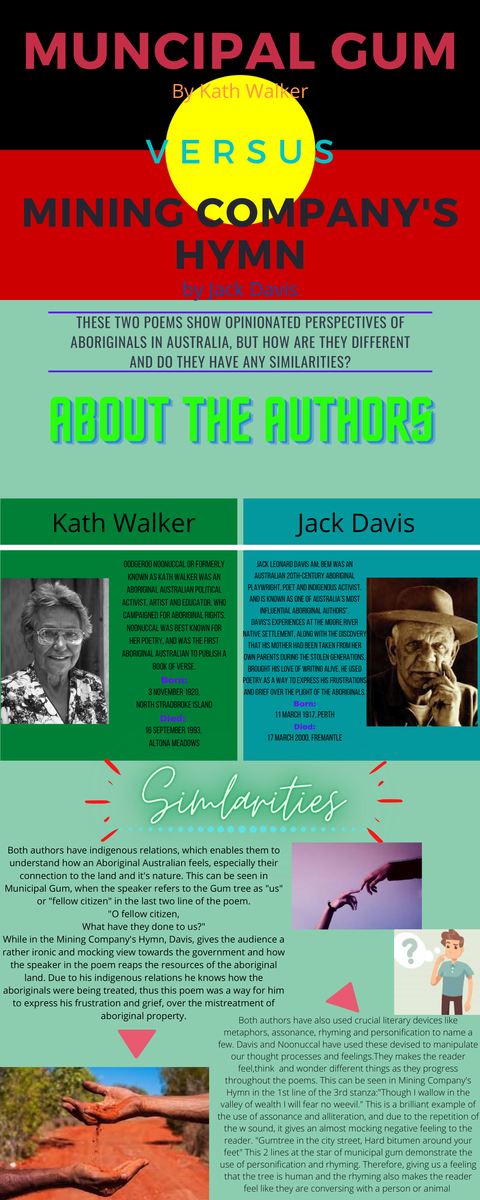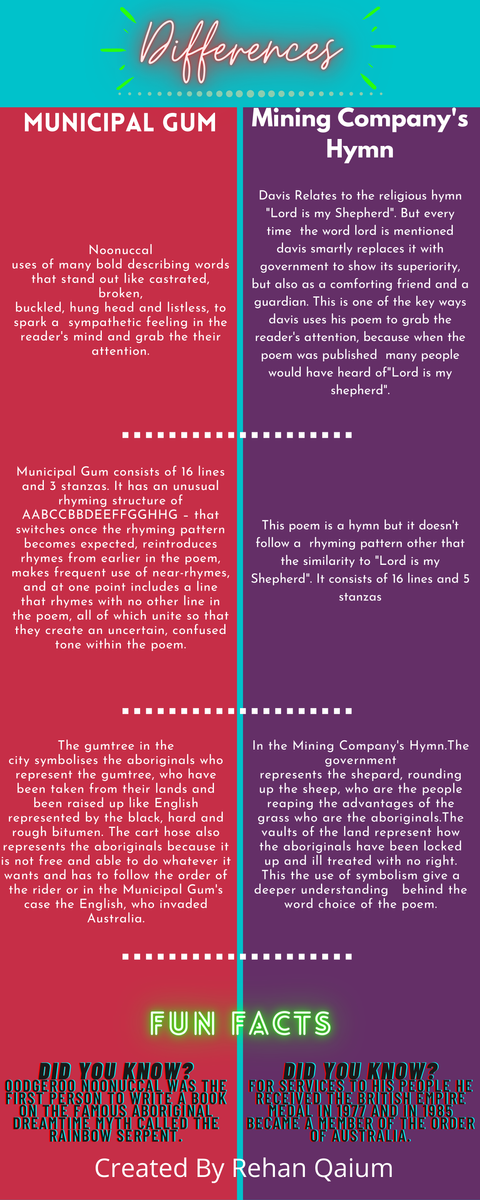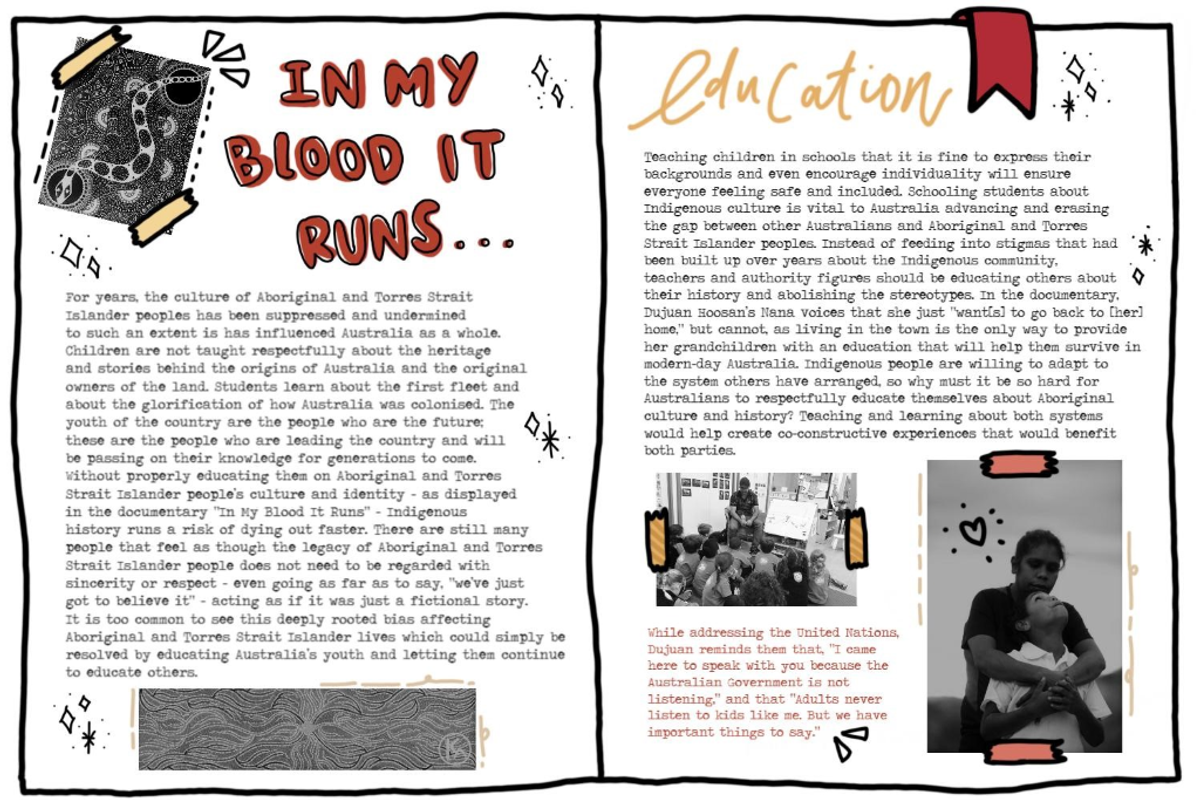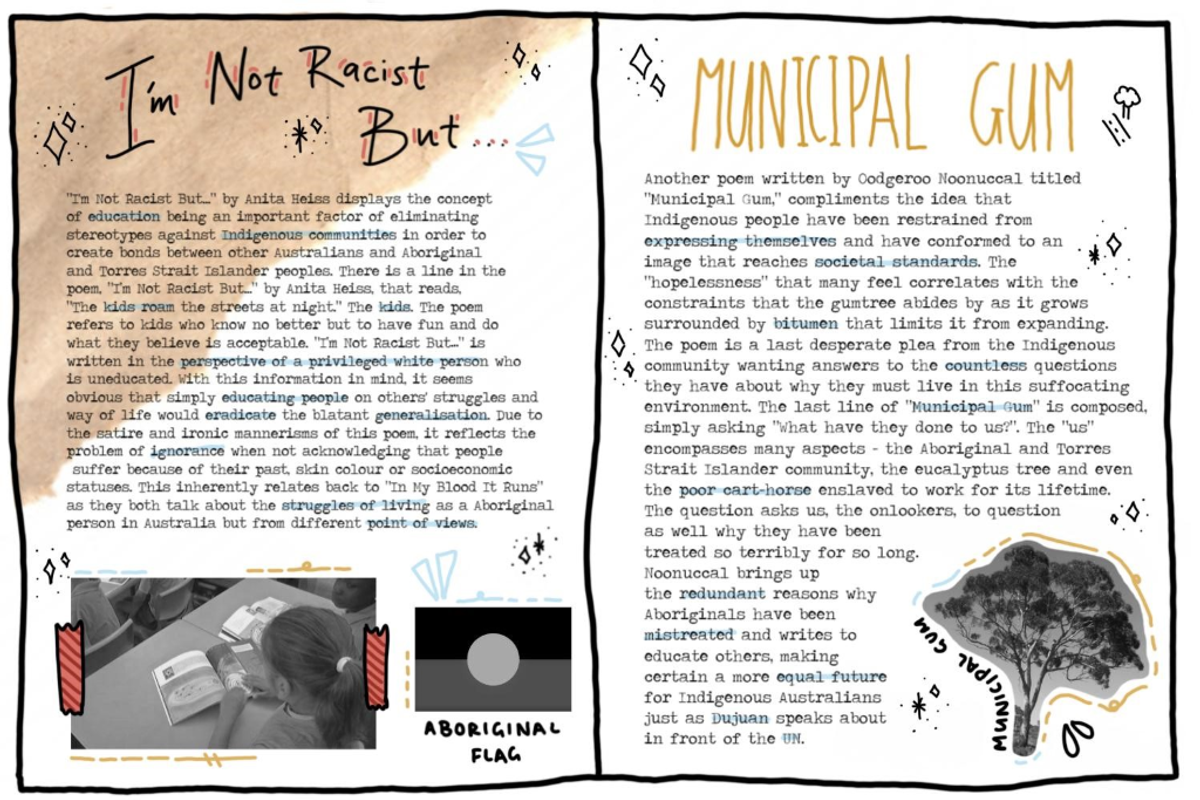English News

City of Casey’s Fresh Words Young Writers Competition
This annual competition is open to students throughout the Casey area, and provides an opportunity for creative writers to be recognised for their talents. Nossal students have achieved notable success in this competition in previous years, and we are delighted that this year has been no different. Congratulations to the following three students who have been honoured with awards in this year’s competition:
Lola Sargasso (Year 10) was awarded First Place for Year 10-12 Poetry and an Encouragement Award for her short story.
"My Grandmother"
My grandmother does not leave the house anymore. Instead,
She sits, quietly. She lets the words
On the small metal radio resting on the counter
Engulf her.
My grandmother knits. She used to sew some too, with me,
But she’s mostly stopped that now
Since she bought me that sewing machine and it only took me
Three weeks before I gave it to my sister.
My grandmother does sudoku puzzles, and sometimes
When she’s feeling especially bright,
She’ll do a crossword.
She calls me sometimes when she’s figured out a particularly tricky clue.
My grandmother bakes. She made me
A loaf of bread, a collection of brownies and
Once she sent me by mail
A cardboard box of oatmeal cookies with cotton string holding down the flaps.
My grandmother reads novels, nasty decrepit volumes
With half of the cover falling off and sickly yellow pages and the price tag still stuck on.
They’re good books, but my dad says that they all
Contain hazardous materials and aren’t to be handled.
My grandmother does not leave the house anymore. Instead,
She reads or bakes or solves or knits and waits
For the anticipated sound
Of our car in the drive and my footsteps on the porch.
Lola Sargasso
Year 10
"The Woodwitch"
Town is an unusual place to see a Woodwitch, so the crowds of people gathered in the street on market day make no attempt to hide their stares as she comes down the lane towards them. The Woodwitch walks with purpose, barely stopping to nod at the various cats and dogs she meets in the alleys. Crabgrass springs from the cracks between the cobblestones in her wake. Reaching the marketplace, she slows and scans the stalls with attention. All in the town would leap at the chance to have a favour owed to them by a Woodwitch, and each vendor displays their best of the best for her with proud but respectful solemnity. She surveys each with a keen eye, and finally stops at the stand of a young woman and her daughter selling garden tools. There she points to an immense iron watering can. Their transaction is quick, and the Woodwitch takes the watering can away with her. She leaves behind two seeds, one that will grow into a herb that prevents infection and another that will sprout a flower and attracts all manner of brightly coloured insects.
Carrying the watering can over her arm, the Woodwitch returns to the wood. Whistling as she walks, her footsteps turn into toadstools, fairy circles forming as her heel leaves the ground. She stops as she reaches the glade and sees for the first time the object of her mission. There is an oak tree standing in the middle of the clearing, its leaves wilted and patches of rotting bark still attached to its trunk. Pityingly, the Woodwitch reaches her hand out to touch it. And she understands. Decades pass in her mind and she witnesses a seed become a sapling become a tree, comfortable and content in this space in the forest. She observes the presence of a lazy river close by, nurturing the tree and helping it to grow. Then there is a change. The riverbed is dry and the village has water and the oak is dying. The Woodwitch takes her hand off the trunk of the oak tree and tightens her grip on the watering can. She is angry.
Passing from the clearing, the Woodwitch kneels and lowers the watering can gently into the empty riverbed, fledgling vines of poison ivy coiling around her toes. She holds it there with increasing force until water spurts from the head and runs in rivulets through the dust. The new river, the one flowing merrily through the heart of the village, runs a little less strongly. Then, with care and attention, she carries it over to the glade and empties it directly over the roots of the tree, taking care to douse every inch with the long-absent moisture. The relief from the oak is palpable. Feeling it, the Woodwitch touches the tree and smiles, purely and simply. She places the watering can next to the tree, bids it respectful farewell and, as subtly as a leaf falling from a branch at the very start of Autumn, the Woodwitch vanishes back into her wood. In the village, the river is empty.
Lola Sargasso
Year 10
Jashan Suran (Year 9) was awarded First Place for Year 7-9 Poetry
"Inflorescence"
On Monday,
The skies illuminate with dreary gloom,
But the mesmerising flora will bloom.
On Tuesday,
Warm sunlight filters through obstacles to those it pities,
And let an unknown feeling into you; is it serendipity?
On Wednesday,
How much longing must fall from the sky like snow,
If longing fills your soul with stardust and moonshine?
You are a child of the cosmos,
A beautiful dark abyss awaiting your hopes.
On Thursday,
Let inspiration be the cynosure of your eyes,
And give in to the revelation of epiphany and make yourself rise.
Optimism is the hope that leads to endearment,
Only if you put your blood, sweat and tears toward commitment.
On Friday,
memories crumble away like dried flower petals,
As we look up at the caliginous sky against our ignited candles.
Isn’t the sky so pulchritudinous,
A graveyard of stars illuminated in the darkness?
On Saturday,
Let sun’s rays into your soul with enchantment,
And remind yourself to not take life for granted.
On Sunday,
Sometimes things in life repeat,
And failures and despairs turn bittersweet,
But look at yourself and breathe
Death in the sun, the cities seethe.
Jashan Suran
Year 9
Kuhu Sharma (Year 9) was awarded an Encouragement Award for Year 7-9 Poetry
"We were talking with silence"
We were talking with silence,
Singing without words,
Dancing without music,
Marching to the beat
Of our own drums.
We were talking with silence,
Walking with smiles,
Shocking people
With our unexpected laughter;
Mocking people with our many miles,
Our expressive eyes
And the disdainful curve of our lips.
We were flying without wings,
Swimming in the air,
Leaping over
Absolutely nothing.
We were twirling,
Even though we weren’t wearing swirling skirts.
Stomping,
Even though we weren’t brats.
And we were talking with silence,
Rich and golden.
Kuhu Sharma
Year 9
NAIDOC Week
NAIDOC week was held in the first week of this term. NAIDOC represents 'National Aborigines and Islanders Day Observance Committee'. During this week, the Year 9 students were engaged in a series of tasks related to NAIDOC week, some of which include watching the documentary 'In my blood it runs' and engaging and analysing poems. Both gave us more insight into what NAIDOC week was about, and we developed our understanding around Indigenous culture and historic context of both the documentary and the poetry. Throughout the week, we discussed and evaluated the key themes portrayed in NAIDOC week, and how these correlates to the messages in the poems ‘Mining company’s hymn’ and ‘Municipal Gum’.
We were given the task of responding to NAIDOC week through analysing the poems and documentary. This could be done through a visual essay, podcast, written response, or another approved form. The intention of this task was to compare the outlined texts and film to a topic, ultimately conveying our understanding on Indigenous culture and history through this NAIDOC week task. Something that I learnt in the duration of this week was how to better analyse poems, and better ways to communicate our responses comparatively and creatively.
Hritik Jagtap - Garuda
Year 9
"The Journey"
So it went
from slopes ablaze
from the land of rain
they fare on, cast their reed upon
the tricklets, the streams of but a vast lake
with pebbles between,
vibrant and verdant,
yet
through blue and grey
through thund’ring affray
they fare on, battled, tossed upon
the ocean, unforgiving, without abate
until they are cast, alone
in place unkenned
and so it went
in lands ablaze
in flooding rains
they lived on, threw their helves upon
this great expanse, the vast landscape
their flat land of stone,
such was their abode,
yet
through smoke and blood
through vast white flood
they trod on, the young and the land gone,
battled by mouthed word, bounds uncut
but they, forced to cower,
they were without might
and so it goes
sat at desks, detracted,
a painted light faded,
to write the irrelevant, from beginning wronged,
to see the superior, to sing the other’s song,
as their young, disillusioned
in the land of their own
but then,
to ask, then apologise
to complain, then concede
the depth of crossed waters, turbulent, colourful;
the book already bound with pages blank
is waiting to be written
with each part of the story.
And so it goes.
Written explanation
The Journey aims to piece together the ongoing story of the Indigenous Australians from the perspectives of my own, the documentary In My Blood It Runs and the poems Narrinyeri Saying and I’m Not Racist But…, from their arrival to Australia to the present day.
Each stanza describes a particular event or period of time, alternating between progress and suffering, referencing:
The arrival as in Narrinyeri Saying, from, on part of my understanding, the volcanic islands (slopes ablaze) of Indonesia and parts of South East Asia, over to Australia;
Their long occupation of the country, in my understanding, self-sustaining and untiring. Intertextual reference to My Country by Dorothea Mackellar;
The conflicts between the indigenous peoples and arriving foreigners, the settlers (white flood), including the Stolen Generation ordeal (the young…gone);
The ongoing (…so it goes) issues in education in parts of Australia, as explored in In My Blood It Runs, where children are being disillusioned by irrelevant teaching;
The acknowledgement of that discussed in I’m Not Racist But…, but rather in a more positive light, indicative of hoped progress and action for the future.
Alongside these references, a number of other features were incorporated:
The allusion to an alternative interpretation of the second stanza (as in Narrinyeri Saying) as the casting of indigenous youths into detention centres, and being met with abuse and other poor treatment;
The last two main stanzas switch the order of the positive/negative events, indicating a change in attitude, action and situation; this is preceded by “and so it goes” to acknowledge its continuing presence;
The “depth of crossed waters, turbulent, colourful” refers to the Walk of Reconciliation over the Harbour Bridge, the Sea of Hands and the deep, turbulent past that hopefully had been transcended and acknowledged;
The gradual loss of rhyme from the poem, including the substitutional rhyme, symbolises the removal of indigenous communities from their culture, and their assimilation (cf. the appearance of alliterative verse, a typically Germanic literary structure);
The avoidance of first- and second-person pronouns, as I hold it inappropriate and assumptive to describe the events occurring to another group as theoretically part of my own or the reader.
This poem is not intended to significantly address the issues afflicting indigenous communities in depth; rather it functions as an insight into what is occurring, and what could be addressed in a separate analysis in greater detail.
Harvey Lam
Year 9, Pegasus
Rehan Qaium - Garuda
Year 9
PODCAST LINK:
https://1drv.ms/v/s!Akn7dIiHZSdoh28svjtEOsC8qp35?e=6kXhMt
PODCAST Script:
The lack of education about Aboriginal culture and history is affecting Australian society negatively
January 26 1788, the day the First Fleet of British ships arrived in Australia. Such a significant year in Australia's documented history, yet not many know about our nation before this specific date, but why is that? The custodians of this land, the culture and traditions they follow and the history of the Indigenous peoples. Is this lack of education affecting our Australian society?
The poor understanding of Indigenous culture, has caused us to gradually erase the significant history of the custodians of this land. In My Blood It Runs is a documentary that follows the story of Dujuan Turner, a ten-year-old Arrernte Aboriginal child growing up in the Northern Territory. Dujuan despises school and the society he lives in, and as a young child, he is scared of the world and upset with the way his people and children are treated. Maya Newell, the director of this documentary, delves into Dujuan's school and personal life, exploring his experiences with Australian police, his feelings towards education and his desire to learn about his culture, traditions, language, and history. In the film, Dujuan states that the history that he is taught at school is ‘for white people, not for Aboriginals’, showing the audience that curricular history tends to heavily focus on the European settlement in Australia and the years afterwards. Due to the Australian curriculum, many Australians are unaware of the traumatic experiences Aboriginals have faced, and of the Indigenous peoples' current plight. As the First Nation's people have been forced to assimilate into a western society, their heritage has been completely erased, so has their ability to learn about their race’s history. This has unfortunately negatively affected the Aboriginal community.
This sentiment is echoed in Municipal Gum written by Oodgeroo Noonuccal. Noonuccal's poem talks about a gumtree which has been 'strapped and buckled' in the city where it does not belong. Noonuccal compares the tree to the Aboriginal community in Australia who were forcibly taken away from their homeland and their heritage, and have been put into a western community, stripped away from their basic rights, even as the custodians of Australia. Even as Australia becomes more developed, we should be able to remember the past and educate the following generations about Aboriginal Australians, the true citizens of this country. As Noonuccal quotes in Municipal Gum, the way Aboriginals were and still are treated is 'hell prolonged'; demonstrating how badly and violently innocent Indigenous Australians were treated, so bad, that it can be considered as hell for them. Yet at schools, students have never learnt about the dark stories that are important in Indigenous history. We, as Australians, should be able to learn about the past of Australia before the year 1788 for it is the true history.
This lack of education about Aboriginal history and culture has also taught Australians to disregard the importance of Indigenous Australians and the respect we should have for them. This issue is showcased in I'm Not Racist But... Written by Anita Heiss. This poem is written from the perspective of a bigoted white Australian. Heiss uses the phrase 'I'm not racist' throughout the poem to reaffirm the belief that the voice of this poem is truly not racist. However this statement is then refuted by the conjunctions 'but' and 'because' , aiming to provide reasoning for the voice's harmful viewpoints which is hidden to the poem's character themselves. She also uses phrases such as 'the past is the past' and 'Why do I have to say sorry for something I didn't do?' showing the reader how the lack of education about Aboriginal culture and history can affect the perspective of non-Indigenous people in a negative manner. It shows how many do not care about the past or believe that they are not at fault for the prejudice beliefs that were held by their ancestors. Yet I'm Not Racist But... Shows the reader that a large number of Australians still continue to believe that they do not need to treat Aborigines respectfully.
We should really understand how we would feel if we were put in the shoes of Indigenous Australians. Think about the importance of Australia's history, before the 18th century. How WE would feel if our culture and traditions were destroyed. The education of Aboriginal history and culture should be valued as it can affect us Australian's negatively.
Samudra Pathmasiri - Griffin
Year 9
Emily Du - Griffin
Year 9
Links:
Elizabeth Chu
Year 9
https://create.piktochart.com/output/48044298-my-visual
Binul Malasinghe
Year 9
Year 9 Indigenous Poems:
I'm Not Racist by Dr. Anita Heiss
I'm not racist but...Why can't I climb Ayres Rock? Why don't they get jobs like everyone else? Did you hear the one about? Why are Aborigines so angry? Why don't they just get over it - the past is the past? Why do I have to say sorry for something I didn't do?
I'm not racist but...They're all drunks! They don't wash! The kids roam the streets at night! They look dangerous!!!
I'm not racist but...I wouldn't pick one up in my cab. I wouldn't want my daughter to marry one. I wouldn't rent my flat to one. I wouldn't employ one.
I'm not racist because...I played football with one once. I worked with one once. I use the word Koori. I let them sit next to me on the bus. I walked over the Harbour Bridge. I signed a hand. I gave money to one begging on the street.
I'm not racist...I'm simply privileged by being white. I'm just speaking from a position of power. I'm just observing the obvious.
I'm not racist, I'm just following the lead of my prime minister!
Canada, 2002
Municipal Gum by Oodgeroo Noonuccal
Gum tree in the city street,
Hard bitumen around your feet,
Rather you should be
In the cool world of leafy forest halls
And wild bird calls
Here you seems to me
Like that poor cart-horse
Castrated, broken, a thing wronged,
Strapped and buckled, its hell prolonged,
Whose hung head and listless mien express
Its hopelessness.
Municipal gum, it is dolorous
To see you thus
Set in your black grass of bitumen -
O fellow citizen,
What have they done to us?
Narrinyeri Saying by David Unaipon
Like children at play we begin Life's journey,
Push our frail bark into the stream of Time,
That flows from snow-capped Mountain.
With no care; Singing and laughing as our boat glides,
Upon the tide wending its way through steep rocky banks,
And meadows with bushes and plants all abloom,
And sweet fragrant flowers.
Until we arrive in the Great Ocean where we are battled and tossed by the angry waves.
Onward and onward.
For three score years and ten.
Then we are cast forlorn and shipwrecked Upon the shore of a strange land.
David Unaipon
The arrival of the first Aborigines on Australian shores.







